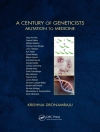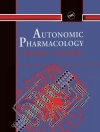Phytochemicals Signal Transduction and Neurological Disorders Phytochemicals are heterogeneous group of bioactive compounds produced by plants, which are extensively researched by scientists for their health-promoting potentials in human diseases. Unlike vitamins and minerals, phytochemicals are not required for sustaining cell viability, but they play an important role in protecting tissues and cells from the harmful effects of oxidative stress and inflammation. Examples of phytochemicals include catechins, resveratrol, ginkgo biloba, curcumin, and sulfur compounds found in garlic. Although, the precise molecular mechanisms associated with beneficial effects of phytochemicals still remain the subject of intense investigations, but it is becoming increasingly evident that phytochemicals mediate their effects by counteracting, reducing, and repairing the damage caused by oxidative stress and neuroinflammation. In addition, phytochemicals also stimulate the synthesis of adaptive enzymes and proteins through the stimulation of a transcription factor called Nrf2 and induction of phase II detoxifying enzymes. Consumption of phytochemicals induces neurohormetic response that results in the expression of adaptive stress-resistance genes that are responsible for encoding antioxidant enzymes, protein chaperones, and neurotrophic factor (BDNF). Based on the stimulation of signal transduction network and adaptive stress-resistance genes, it is proposed that the use of phytochemicals from childhood to old age along with regular exercise is an important strategy for maintaining normal aging and delaying onset of age-related neurological disorders (stroke, Alzheimer disease, and Parkinson disease). Phytochemicals Signal Transduction and Neurological Disorders presents readers with cutting edge and comprehensive information not only on bioavailability, and mechanism of action of phytochemicals in the brain, but also provides the molecular mechanism associated with beneficial effects of phytochemicals in neurotraumatic (stroke, spinal cord trauma, and traumatic brain injury) and neurodegenerative (Alzheimers disease, Parkinson disease, Huntington disease, and amyotrophic lateral sclerosis) diseases.
Innehållsförteckning
Chapter 1. Effects of life style and aging on the onset of neurological disorders.- Chapter 2. Beneficial effects of extra virgin olive oil (n-9 fatty acids) on neurological disorders.- Chapter 3. Beneficial effects of flaxseed oil (omega-3 fatty acids) on neurological disorders.- Chapter 4. Beneficial effects of flavonoids on neurological disorders.- Chapter 5. Beneficial effects of green tea catchins on neurological disorders.- Chapter 6. Beneficial effects of curcumin on neurological disorders.- Chapter 7. Beneficial effects of resveratrol on neurological disorders.- Chapter 8. Beneficial effects of Ginkgo biloba on neurological disorders.- Chapter 9. Beneficial effects of garlic components on neurological disorders.- Chapter 10. Beneficial effects of propolis on neurological disorders.- Chapter 11. Perspective and direction for future research on phytochemical in neurological disorders.












